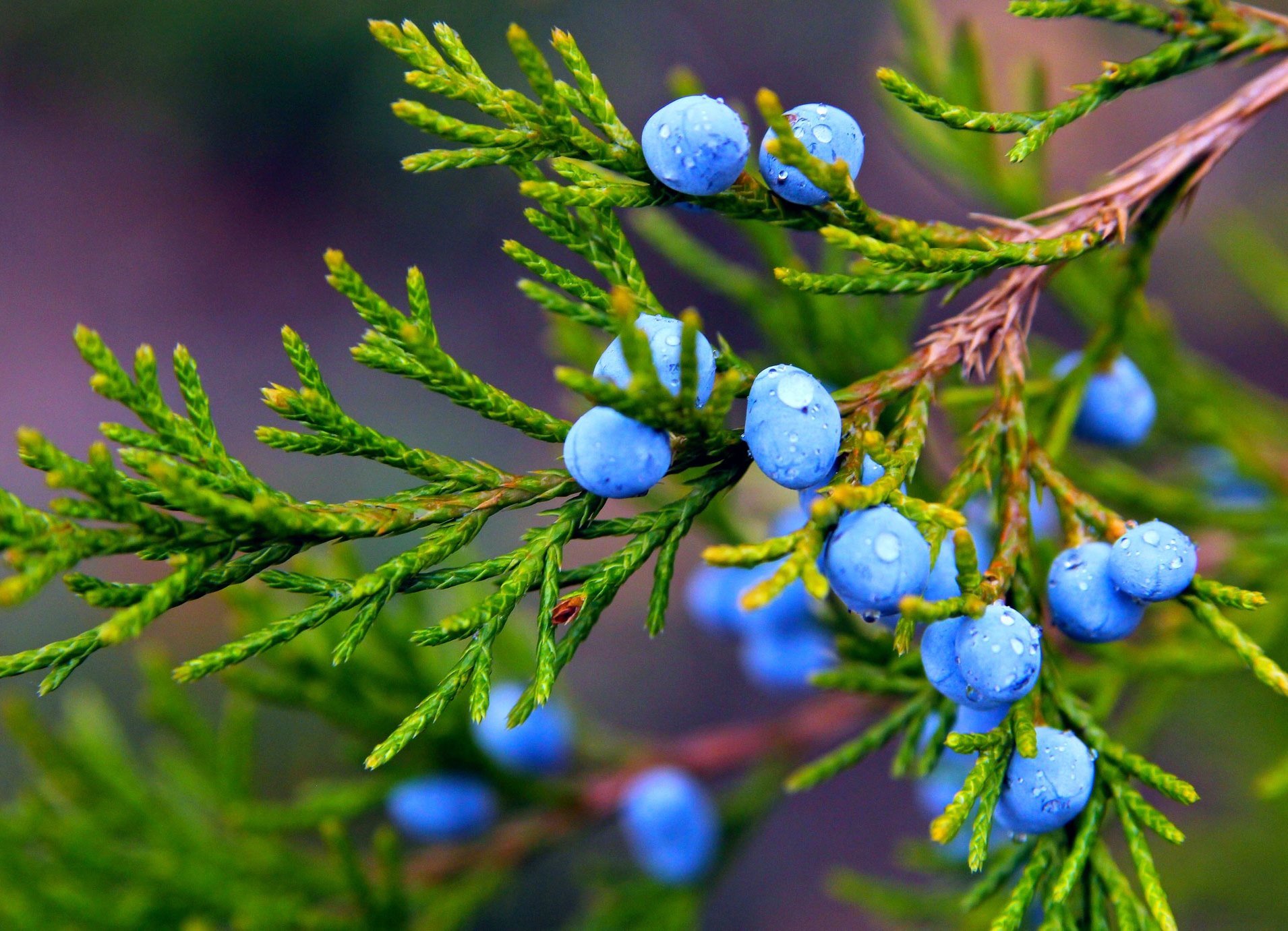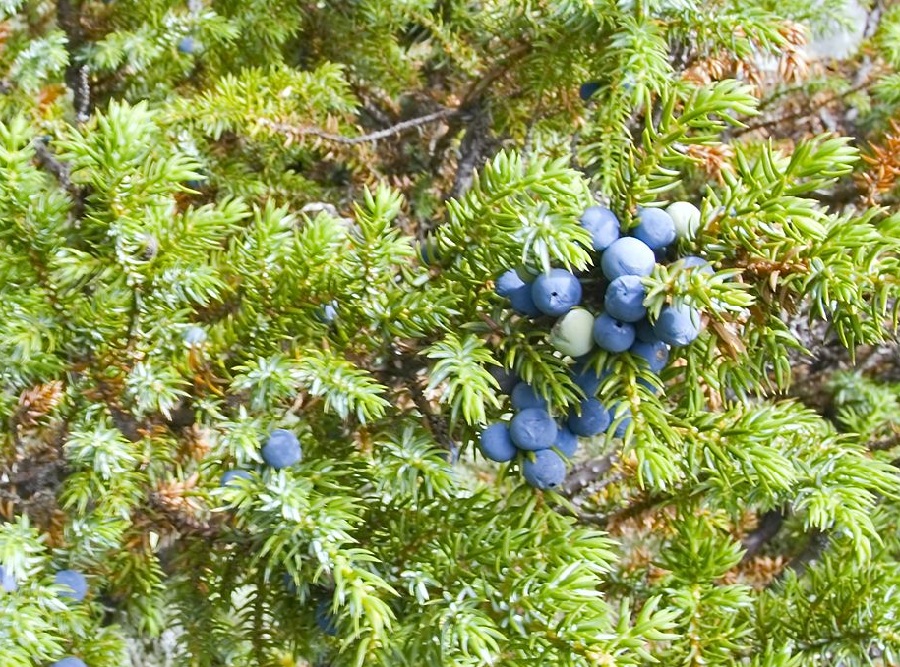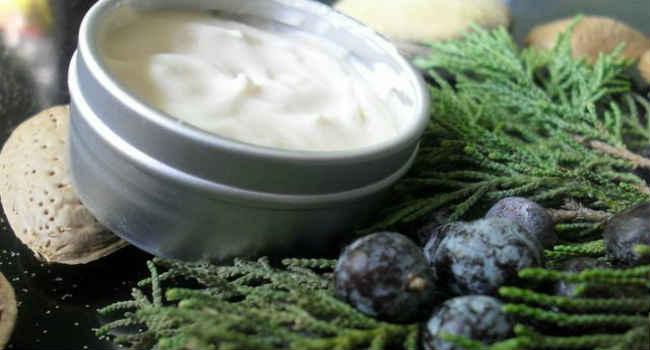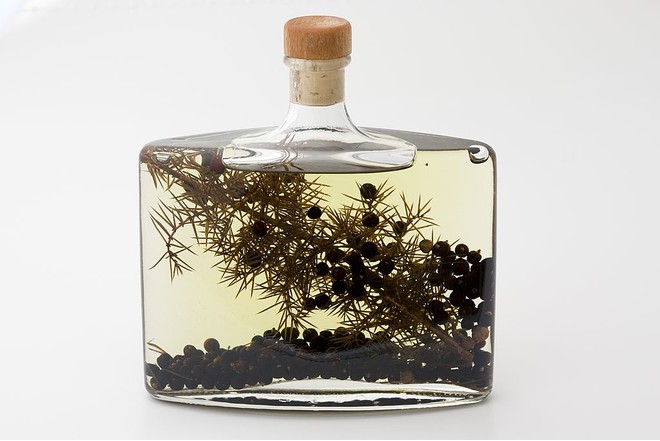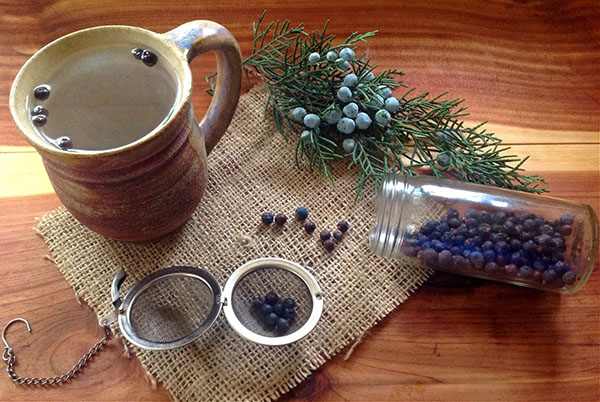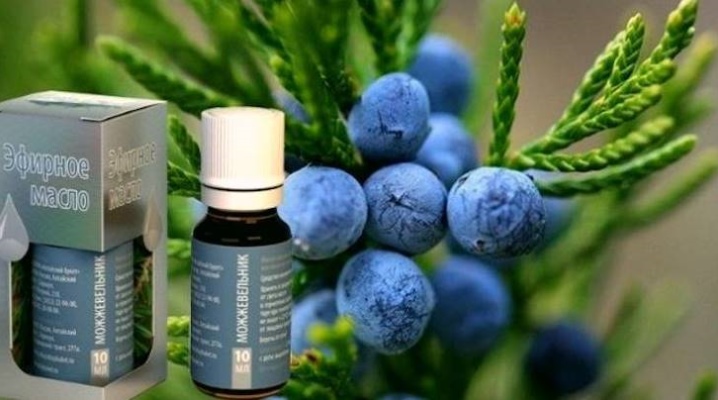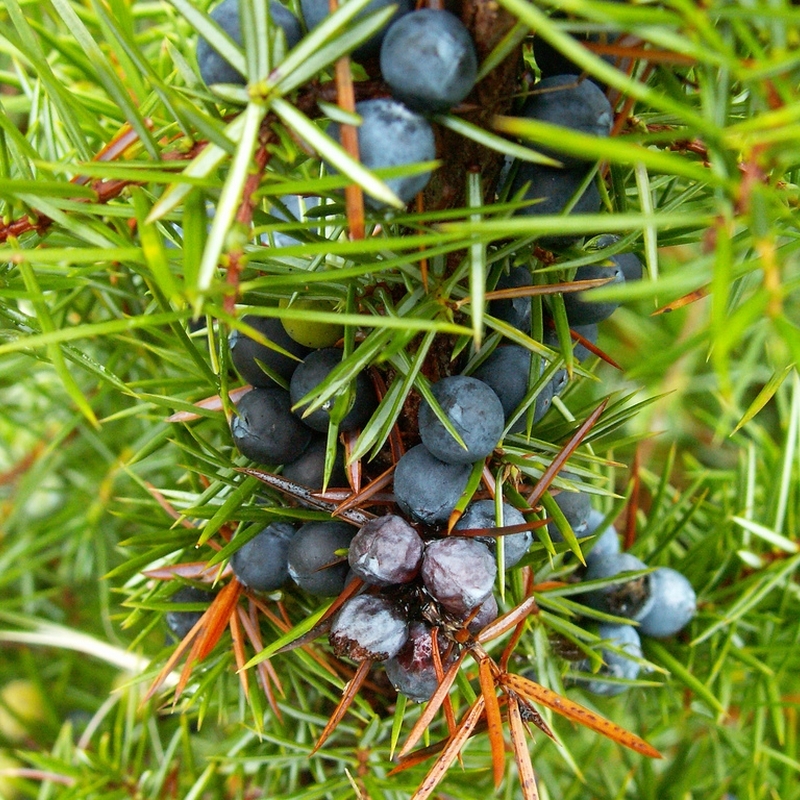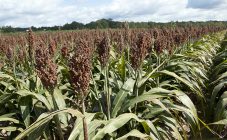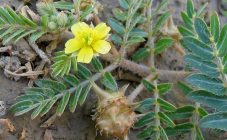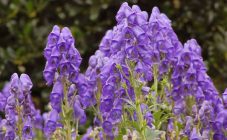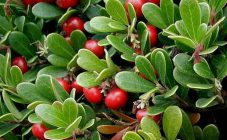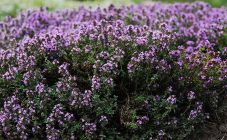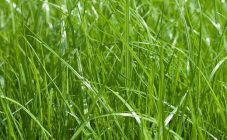Content:
Junipers are evergreens of the cypress family. Due to their decorative appearance, their cultivation is practiced in alleys, parks and gardens. Some species produce edible fruits that are rich in nutrients. They are used in various fields - medicine, cosmetology and cooking.
Healing properties of juniper berries
The ancient Romans knew about the healing effect of juniper fruits. They were used to treat snakebites and prevent wine from souring.
Berries have a versatile effect on the body. They have a number of properties:
- antibacterial;
- fungicidal;
- anti-inflammatory;
- diuretic;
- antiprotozoal;
- pain relievers;
- tonic;
- expectorant;
- antipyretic;
- wound healing;
- carminative.
Such a wide range of action is due to the rich chemical composition of the fruit.
The indications for the use of juniper berries are diseases:
- urinary and respiratory systems;
- liver and pancreas;
- arthritis, arthrosis;
- skin lesions of allergic, infectious and autoimmune origin.
Also, the fruits are effective against various inflammations.
So that juniper berries do not harm the body, when using them for medicinal purposes, some recommendations must be followed:
- course reception cannot be continued for more than two months;
- if necessary, long-term treatment takes monthly breaks;
- they must first consult with a specialist.
Medicines are prepared from the fruits of only one type - the common juniper. The rest of the varieties - Cossack, Chinese, Virginian - play an exclusively decorative role. Therefore, when picking berries, it is important not to make a mistake.
Useful properties of juniper berries
Due to the diverse set of chemical components, juniper fruits:
- strengthen the immune system and increase the body's resistance to infections;
- prevent premature aging;
- stimulate the digestive tract and reduce gas formation;
- inhibit the growth of pathogens;
- when applied externally, they promote rapid wound healing and relieve inflammation from the skin;
- when used during a cold, accelerate recovery;
- improve the condition of the heart and blood vessels.
The fruits are effective as a preventive and general tonic.
Contraindications and possible harm
As with any medicine, juniper berries have several contraindications. It is forbidden to take them:
- with diseases of the liver, kidneys and gastrointestinal tract during an exacerbation;
- during pregnancy and breastfeeding;
- in the presence of individual intolerance to the components.
The berries contain a small amount of toxic substances that give them antibacterial properties. However, when the permitted dosage is exceeded, the surface renal tissue is irritated, in rare cases bleeding occurs.
Spheres and methods of application
Juniper berries are used in official and folk medicine, cosmetology and cooking.
Healers include them in all kinds of decoctions, infusions, medicinal ointments. The first mentions of such funds were found in ancient Egyptian papyri. There are many recipes for potions that are easy to make at home.
Infusion of juniper berries is useful for:
- pneumonia, tuberculosis, bronchitis;
- gallstone disease;
- inflammation in the oral cavity;
- rheumatism;
- violations of the central nervous system.
To prepare a fortifying alcohol infusion you will need:
- juniper berries - 5 g;
- vodka - 500 ml;
- honey - 25 g.
Step by step recipe:
- The berries are pounded and poured into vodka.
- The container is sealed and kept in a dark place for 14 days.
- After the specified time, the tincture is filtered.
The product is ready to use. Honey is added if the drink tastes too "strong". After that, it is insisted for another 2 days.
Juniper broth is beneficial for:
- kidney and bladder problems;
- lack of appetite;
- violations of the digestive tract.
A drink from juniper berries stimulates the outflow of bile, relieves pain in rheumatism, increases potency, and normalizes the menstrual cycle.
To prepare the broth you need:
- berries - 2 tbsp. l .;
- a glass of clean water.
How to do:
- The berries are placed in a pot of water.
- The broth is kept in a water bath for 15 minutes.
- After the specified time, the pan is removed from the stove, insulated and left to cool completely.
The finished drink is filtered and drunk 3 times a day, 1 tbsp. l. A decoction of juniper berries is added to baths to relieve joint pain. But they prepare it more concentrated - 50 g of berries per 0.5 l of water.
Juniper ointment has a pronounced regenerating effect. It disinfects wounds and speeds up the healing of cuts. It is used for various skin lesions:
- burns;
- frostbite;
- purulent inflammations.
Components:
- juniper fruits - 1 glass;
- sunflower or olive oil - 400 ml;
- wax - 2-3 tbsp. l.
Preparation:
- Berries are left in clean water overnight.
- In the morning, the water is poured, the berries are pounded and transferred to a suitable bowl.
- The fruit gruel is poured with oil and cooked in a steam bath for about 5 minutes.
- When the mixture has cooled, the oil is drained.
- Wax is added to the berries and again cooked in a water bath until the mass acquires a homogeneous consistency.
- The ointment is laid out in small jars and stored in the refrigerator.
The juniper remedy is rubbed into problem areas.
In cooking, juniper berries are used in the preparation of:
- meat dishes;
- pates;
- sauces;
- marinades;
- sauerkraut.
The fruits harmonize well with other seasonings. They are also added to fruit drinks, jelly and syrups. A small amount of berries and juniper needles are used when smoking to give the meat a more pronounced flavor.
Chemical composition and calorie content
Fruits contain many beneficial compounds:
- vitamins C and E;
- minerals - manganese, copper, iron, chromium, potassium, zinc;
- pectin;
- alimentary fiber;
- organic acids;
- flavonoids;
- phytoncides;
- anthocyanins;
- rutin;
- monosaccharides;
- resin.
All parts of the juniper contain essential oil. In berries, its amount varies from 0.5 to 2%.
The nutritional value of the fruits is about 116 Kcal per 100 g. No proteins or fats were found in the composition, the proportion of carbohydrates is 31%.
Essential oil
Juniper oil has as many positive properties as the fruit itself. It has the following effects:
- removes toxic substances from the body;
- relieves pain;
- increases tone;
- strengthens the immune system;
- destroys pathogenic microorganisms;
- stimulates blood circulation and warms.
Juniper berry oil improves arthritis and gout. It soothes the central nervous system and relieves stress symptoms.
The oil is used in cosmetology.It helps fight cellulite and acne, tones the skin, smoothes fine wrinkles, and accelerates hair growth.
How to harvest and dry juniper berries
Juniper is found in central Russia, the Urals and Siberia. It often grows on the edges of forests, in ravines, in overgrown clearings.
Juniper fruits are small balls of bluish-gray color with a diameter of 6-9 mm, which are essentially cones. They are covered with a dense skin. It shows a groove diverging into 3 rays. There are several (1-3) seeds in the friable pulp.
Healing raw materials are harvested in autumn - from the beginning of September to the end of October, when the juniper ripens completely. By this time, the berries are almost black. The concentration of nutrients in them is maximum.
To prepare the fruit, you need a piece of clean cloth or burlap. The material is placed under the bush and the plant is gently shaken. Gloves must be worn on hands. Ripe buds will fall off by themselves.
To preserve the harvested fruits for a long time, they are dried. First, the berries are sorted out, cleaned of needles and branches. They are not subjected to additional heat treatment, but are laid out in a thin layer outdoors or in a well-ventilated area. Periodically, the juniper berries are turned over so that the process goes evenly. Dried juniper, harvested in this way, retains the most useful substances.
Juniper fruits are a valuable medicinal raw material. Means prepared on their basis strengthen the immune system, relieve joint pain, relieve inflammation. They also help solve cosmetic problems. The main thing is to comply with the permitted dosage and not to abuse the natural medicine.
